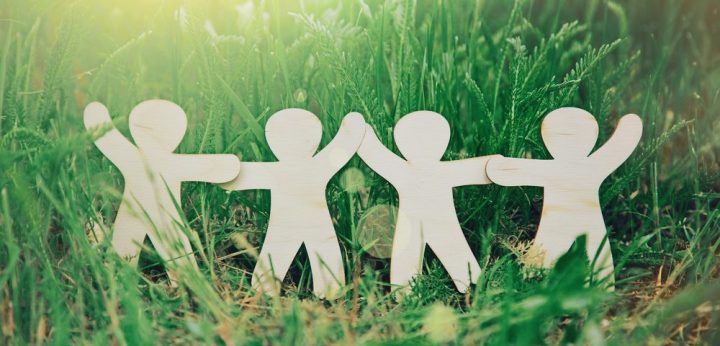We’ve Learned to Compartmentalize Family Life While Living with ALS

A few months after Todd’s diagnosis, our ALS clinic put me in touch with a woman who was further down the road that I had just begun. Similar to our situation, her husband was diagnosed in his late 30s when they had a newborn son. I spoke with her on the phone and was encouraged to learn that their son was 10, and her husband was still alive.
“I hope Todd’s disease progresses as slowly,” I told her. “But I don’t want to spend the next 10 years grieving.”
“You learn to compartmentalize it,” she said.
Speaking with her, I envisioned the possibility that Todd might outlive his prognosis, but how would I navigate years of ALS? In my mind, the word “compartmentalize” had a negative connotation related to emotional well-being. But my state of mind wasn’t sustainable, either.
Even when I tried to focus on the sunshine in our lives, the cloud was always there. Something as innocuous as a Facebook anniversary post might prick my heart because I knew it was unlikely that Todd and I would reach the milestone another couple was celebrating.
The following spring, I met the woman and her husband when they spoke at an ALS support group. He sat slouched in a power wheelchair. His left arm lay limp on his lap. His speech was heavily slurred, so she translated for him.
I was shocked to see the reality of his condition because she had seemed so composed on the phone.
Despite his limitations, he was tanned from the sun. She explained that they had just come from their son’s baseball game. They talked about the reality of ALS in plain terms and answered questions. They were in good spirits and eager to help the ALS community.
I’ve been trying to navigate the emotions that accompany ALS for nearly a decade now. It’s challenging to live with uncertainty and stress for an extended period.
Though Todd’s health is precarious, life continues. Unlike many crises, we can’t pause, rest, and recover while we wait for things to get back to normal, or even a little better. If we are to live, we need to exist amid this madness.
Todd needs nearly 24-hour care, but I can leave him for an hour or two as I run our kids to school and their various activities. Our son has baseball, soccer, and basketball games. Our daughter has music and dance lessons. Todd attends activities when he can and if they are indoors and accessible. Todd and I need to figure out solutions for his breathing and sleep, but this is our children’s only childhood.
In her book “Becoming,” Michelle Obama writes about family life in the White House. Her husband had always been good at compartmentalizing, and when he came up from the Oval Office to their residential quarters for dinner, he set aside the worries of the nation. She writes, “Bin Laden was not invited to dinner … We had kids, and kids needed room to speak and grow.” As she explains, the family dinner was a time to focus on their children and their concerns and activities.
That idea resonates with me, but ALS sometimes shows up at our dinner table uninvited — Todd’s jaw painfully cramps or he aspirates on food and needs an assisted cough. How do I compartmentalize that? And should I?
Psychotherapist and author Barton Goldsmith writes, “Compartmentalization is not about being in denial; it’s about putting things where they belong and not letting them get in the way of the rest of your life.”
We are intentional about engaging our children, encouraging them to talk about their day at school, and celebrating their accomplishments. When ALS inevitably invades our dinner, we adjust our focus until the moment of crisis has passed. I help Todd, and then we shift our attention back to discussing the day’s highlights.
I’ve found it helpful to take time to cry and scream when I’m alone in the car. I also make space for laughter. Todd and I have worked our way through several sitcom series. We’re currently watching “The Office” — we both enjoy the antics of Jim and Dwight. When needed, I pause the show to give Todd an assisted cough.
Life feels fragmented, bouncing from emotion to emotion, but it beats the alternative of living in denial or continual depression.
ALS is our life, and we are playing the cards we were dealt.
***
Note: ALS News Today is strictly a news and information website about the disease. It does not provide medical advice, diagnosis, or treatment. This content is not intended to be a substitute for professional medical advice, diagnosis, or treatment. Always seek the advice of your physician or other qualified health provider with any questions you may have regarding a medical condition. Never disregard professional medical advice or delay in seeking it because of something you have read on this website. The opinions expressed in this column are not those of ALS News Today or its parent company, Bionews Services, and are intended to spark discussion about issues pertaining to ALS.







Valerie F Edwards
Thanks for sharing with those of us who are new to these difficult situations.
Wendy Walter
Thank you for this! My husband also has ALS at 45 and we have 4 children; ages 23, 21, 16, and 15. You are so right about providing them with as much "normality" as possible while dealing with this monster of a disease! We also watch sitcoms and so far, The Office has been our favorite. Take care of yourself and God bless.
Chee-Wooi Ten
Compartmentalization of emotion would be the skills many are struggling to learn in their early adulthood until they are learning to be wise. The cup is half empty and half full, it is the choice one can make. In the end, it is intuitively simple. With joy, it will be a memory; with grief, we will miss the joyous moments. By the time when we choose otherwise, the person might have already left the world.